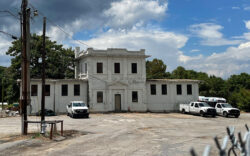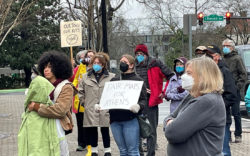If there’s any fun to be had during the Trump Administration, it will be to watch what happens when a terrifically insecure man makes insane promises to curry affection and praise, only to find himself unable to deliver much of anything. Promises already impossible off the rip were made even more undoable with each superlative (“best!” “greatest!”) and hyperbolic (“tremendous!” “huge!”) addendum. So, feeling his oats on the day after the election, Trump didn’t promise just any infrastructure program. He said, “We are going to fix our inner cities and rebuild our highways, bridges, tunnels, airports, schools, hospitals.” All of which will be “second to none” and “put millions of our people to work.” Oh, and he promises it’ll be “revenue neutral,” meaning that it won’t come from deficit spending.
Not gonna happen. First off, whatever does get built won’t be the best in the world. That simply won’t happen without actually spending what world-class projects cost. The price tag on a basic infrastructure reboot would be upwards of $3.6 trillion, according to the American Society of Civil Engineers, and it’s highly unlikely that the Republican-controlled Congress would sign off on even a tenth of that. So Trump’s ruse is to promise a $1 trillion infrastructure plan that sounds to most voters like what we’ve always done: The government, using its own funds, hires workers (and some subcontractors) to build roads, bridges, etc. But all it is really are massive tax cuts to try to entice private companies to build the projects. The government won’t be funding the projects but essentially selling them off to corporations.
It’s a “privatization fire sale,” writes David Dayen at the New Republic. It’s simply more neoliberalism passed off as generous populism. Instead of funding the projects themselves, the government will be funding the profits of companies, and when profits don’t look good enough, those companies will opt for tolls and user fees, say experts. Even high-toll elite roads might be built for those who can afford a quicker commute.
That’s because, under Trump’s plan, projects will have to be monetizable, with continuing revenue streams. Projects unattractive to corporations—like updating Flint, MI’s water system, for example—simply won’t be pursued, since the promise of profits is the only motivator in Trump’s current plan. With contemporary capitalism increasingly defined by extreme winners and losers, Trump’s privatization plan could cement, quite literally, inequality into our built environment.
Like what you just read? Support Flagpole by making a donation today. Every dollar you give helps fund our ongoing mission to provide Athens with quality, independent journalism.









